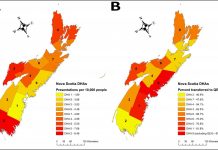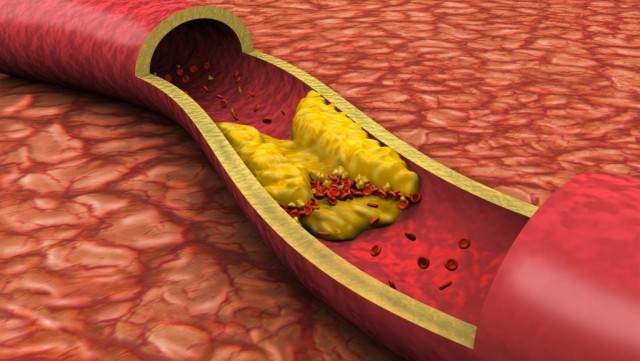Taking aspirin to prevent coronary heart disease is beneficial and cost-effective for a wider range of men than is often recognized, a study from the University of North Carolina at Chapel Hill has found.
Compared to no treatment, taking aspirin was less costly and more effective for preventing heart attacks and other events in men whose 10-year risk for coronary heart disease was 7.5 percent or greater. At that risk level, 7.5 out of 100 people can expect to have a heart attack or develop angina in the next 10 years.
Before this analysis, most experts felt aspirin was beneficial in men with a 10-year risk of heart disease of 10 percent or greater, said Dr. Michael Pignone, associate professor of medicine in the UNC School of Medicine's Division of General Internal Medicine.
"Our analysis suggests that it is also beneficial for men between 5 percent and 10 percent risk," said Pignone, also a member of the UNC Lineberger Comprehensive Cancer Center.
The study also showed that aspirin was not effective for men whose 10-year risk was below 5 percent, because the chance of adverse effects from bleeding cancelled the benefit from prevention of coronary heart disease events.
Continue Reading Below ↓↓↓
"There are patients at higher risk for coronary heart disease who aren't getting aspirin therapy who could benefit, and there are also those at lower risk who are taking aspirin but shouldn't be," Pignone said.
The study also found that adding a statin, or cholesterol-lowering, drug to aspirin therapy became cost-effective only when the patient's 10-year risk for coronary heart disease was higher than 10 percent.
"People should find out their cardiovascular risk and make decisions about preventive treatment based on that risk," Pignone said.
The study, of which Pignone is the lead author, is published in the March 7 issue of Annals of Internal Medicine.
Tools are available that patients or physicians can use to determine an individual's risk for coronary heart disease, including "Heart to Heart," found at www.med-decisions.com, the authors said.
The study used published data from trials of aspirin and statin therapy to model the cost-effectiveness of the therapies in middle-aged men who are at varying levels of risk for heart disease.
"Many trials have shown efficacy of aspirin or statins, but we wanted to analyze the efficacy along with the harms, the costs and effect on quality of life and see how good of a deal these treatments are," Pignone said.
The analysis factored in the risk of side effects such as gastrointestinal bleeding, as well as the reduction in quality of life that occurs when a patient finds it onerous to take a pill every day. The study was limited somewhat by the amount and quality of data available, including limited data on adverse effects, Pignone said.
"We still need more research on some of these issues in order to better guide prevention decisions."
Other authors of the study are Dr. Stephanie Earnshaw of RTI Health Solutions in Research Triangle Park; and Dr. Jeffrey A. Tice and Dr. Mark J. Pletcher, both of the University of California at San Francisco.
Continue Reading Below ↓↓↓
Pignone and colleagues plan a future analysis of similar data that applies to women.
The study was supported by Bayer HealthCare, LLC. Bayer had no role in collection, interpretation or analysis of the data, the authors said. Pignone also received support from a grant from the U.S. Centers for Disease Control and Prevention to the RTI-UNC Center of Excellence in Health Promotion Economics.
Source: University of North Carolina School of Medicine









